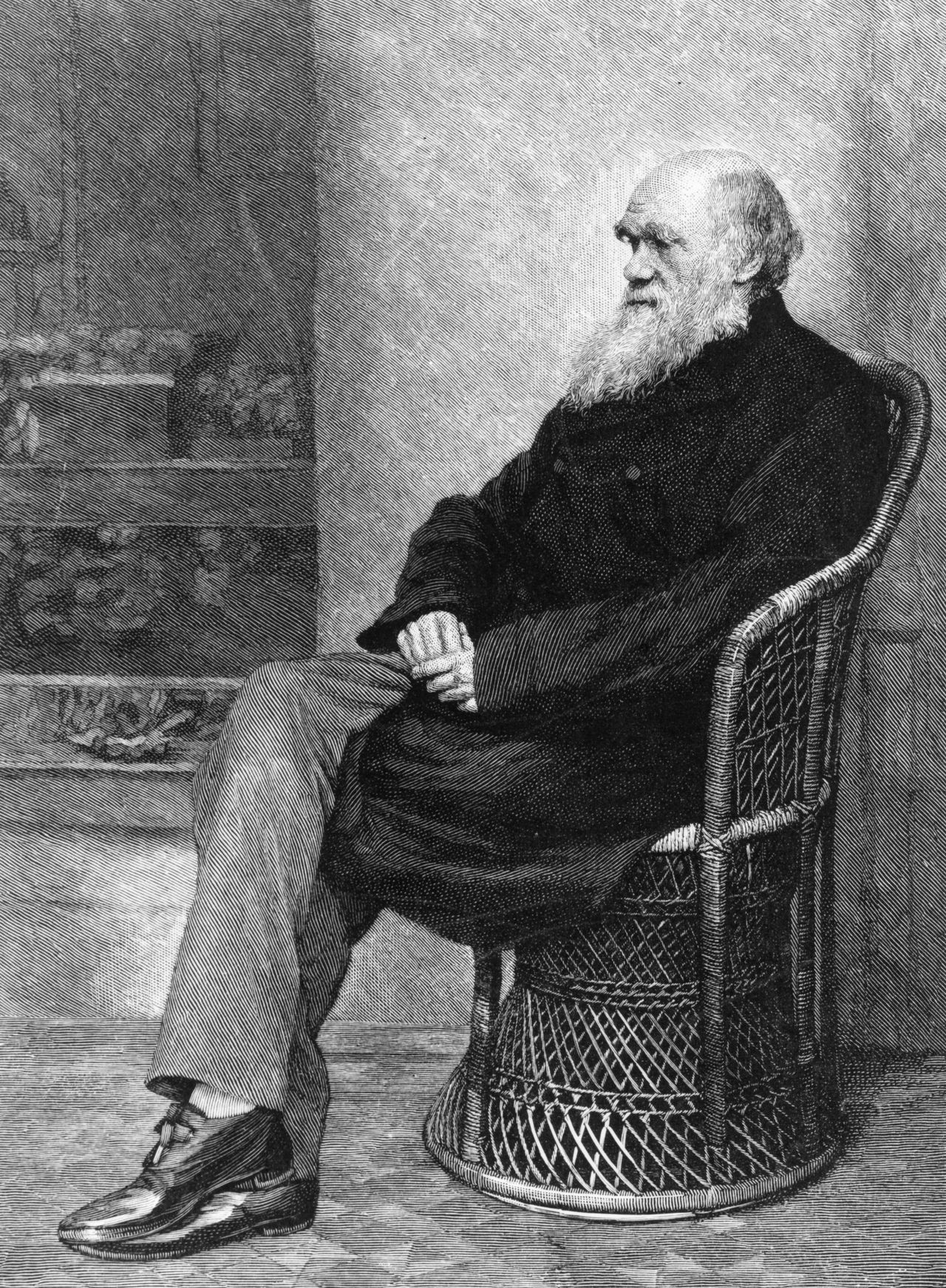Why you should work 4 hours a day, according to science
Darwin, Dickens, and some of the most accomplished people in history have one thing in common. They worked with intense focus — but for only four hours a day.

When you examine the lives of history's most creative figures, you are immediately confronted with a paradox: They organized their lives around their work, but not their days.
Figures as different as Charles Dickens, Henri Poincaré, and Ingmar Bergman, working in disparate fields in different times, all shared a passion for their work, a terrific ambition to succeed, and an almost superhuman capacity to focus. Yet when you look closely at their daily lives, they only spent a few hours a day doing what we would recognize as their most important work. The rest of the time, they were hiking mountains, taking naps, going on walks with friends, or just sitting and thinking.
How did they manage to be so accomplished? If some of history's greatest figures didn't put in immensely long hours, maybe the key to unlocking the secret of their creativity lies in understanding not just how they labored but how they rested.
Subscribe to The Week
Escape your echo chamber. Get the facts behind the news, plus analysis from multiple perspectives.

Sign up for The Week's Free Newsletters
From our morning news briefing to a weekly Good News Newsletter, get the best of The Week delivered directly to your inbox.
From our morning news briefing to a weekly Good News Newsletter, get the best of The Week delivered directly to your inbox.
After his morning walk and breakfast, Charles Darwin was in his study by 8 a.m. and worked a steady hour and a half. At 9:30 he would read the morning mail and write letters. At 10:30, Darwin returned to more serious work, sometimes moving to his aviary or greenhouse to conduct experiments. By noon, he would declare, "I've done a good day's work," and set out on a long walk. When he returned after an hour or more, Darwin had lunch and answered more letters. At 3 p.m. he would retire for a nap; an hour later he would arise, take another walk, then return to his study until 5:30, when he would join his wife and family for dinner.
On this schedule he wrote 19 books, including technical volumes on climbing plants, barnacles, and other subjects; the controversial Descent of Man; and The Origin of Species, probably the single most famous book in the history of science.
But at the same time, his days don't seem very busy to us. If he had been a university professor today, he would have been denied tenure. If he'd been working in a company, he would have been fired within a week.
It's not that Darwin was careless or lacked ambition. He was intensely conscious of time and, despite being a gentleman of means, felt that he had none to waste.
Sign up for Today's Best Articles in your inbox
A free daily email with the biggest news stories of the day – and the best features from TheWeek.com
But he managed something that seems increasingly alien today. His life was full and memorable, his work was prodigious, and yet his days were filled with downtime.
Darwin is not the only famous scientist who combined a lifelong dedication to science with apparently short working hours. We can see similar patterns in many others' careers, and it's worth starting with the lives of scientists for several reasons. Science is a competitive, all-consuming enterprise. Scientists' accomplishments — the number of articles and books they write, the awards they win, the rate at which their works are cited — are well-documented and easy to measure and compare. As a result, their legacies are often easier to determine than those of business leaders or other famous figures.
One example is Poincaré, the French mathematician whose public eminence and accomplishments placed him on a level similar to Darwin's. Poincaré's 30 books and 500 papers spanned number theory, topology, astronomy and celestial mechanics, theoretical and applied physics, and philosophy; he was involved in efforts to standardize time zones, supervised railway development in northern France, and was a professor at the Sorbonne.
Poincaré wasn't just famous among his fellow scientists: In 1895 he was, along with the novelist Émile Zola, sculptors Auguste Rodin and Jules Dalou, and composer Camille Saint-Saëns, the subject of a study by French psychiatrist Édouard Toulouse on the psychology of genius. Toulouse noted that Poincaré kept very regular hours. He did his hardest thinking between 10 a.m. and noon, and again between 5 and 7 in the afternoon. The 19th century's most towering mathematical genius worked just enough to get his mind around a problem — about four hours a day.
We see the same pattern among other noted mathematicians. G.H. Hardy, one of Britain's leading mathematicians in the first half of the 20th century, would start his day with a leisurely breakfast and close reading of the cricket scores, then from 9 to 1 would be immersed in mathematics. After lunch he would be out again, walking and playing tennis. "Four hours' creative work a day is about the limit for a mathematician," he told his friend and fellow Oxford professor C.P. Snow. Hardy's longtime collaborator John Edensor Littlewood believed that the "close concentration" required to do serious work meant that a mathematician could work "four hours a day or at most five, with breaks about every hour (for walks perhaps)."
A survey of scientists' working lives conducted in the early 1950s yielded results in a similar range. Illinois Institute of Technology psychology professors Raymond Van Zelst and Willard Kerr surveyed their colleagues about their work habits and schedules, then graphed the number of hours spent in the office against the number of articles they produced. You might expect that the result would be a straight line showing that the more hours scientists worked, the more articles they published. But it wasn't.
The data revealed an M-shaped curve. The curve rose steeply at first and peaked at between 10 to 20 hours per week. The curve then turned downward. Scientists who spent 25 hours in the workplace were no more productive than those who spent five. Scientists working 35 hours a week were half as productive as their 20-hours-a-week colleagues.
From there, the curve rose again, but more modestly. Researchers who buckled down and spent 50 hours per week in the lab were able to pull themselves out of the 35-hour valley: They became as productive as colleagues who spent five hours a week in the lab. Van Zelst and Kerr speculated that this 50-hour bump was concentrated in "physical research," and that most of those 10-hour days were spent tending machines and occasionally taking measurements.
After that, it was all downhill: The 60-plus-hour-a-week researchers were the least productive of all.
Karl Anders Ericsson, Ralf Krampe, and Clemens Tesch-Römer saw a similar pattern in a study of violin students at a conservatory in Berlin in the 1980s. Ericsson, Krampe, and Tesch-Römer were interested in what sets outstanding students apart from merely good ones. After interviewing music students and their teachers and having students keep track of their time, they found that several things separated the best students from the rest.
First, the great students didn't just practice more than the average, they practiced more deliberately. During deliberate practice, Ericsson explained, you're "engaging with full concentration in a special activity to improve [your] performance." You're not just doing reps, lobbing balls, or playing scales. Deliberate practice is focused, structured, and offers clear goals and feedback; it requires paying attention to what you're doing and observing how you can improve.
Second, you need a reason to keep at it, day after day. Deliberate practice isn't a lot of fun, and it's not immediately profitable. It means being in the pool before sunrise, working on your swing or stride when you could be hanging out with friends, spending hours perfecting details that only a few other people will ever notice. There's little that's inherently or immediately pleasurable in deliberate practice, so you need a strong sense that these long hours will pay off, and that you're not just improving your career prospects but also crafting a professional and personal identity. You don't just do it for the fat stacks.
Ericsson's study is a foundation for Malcolm Gladwell's argument (laid out most fully in his book Outliers) that 10,000 hours of practice are necessary to become world-class in anything, and that everyone from chess legend Bobby Fischer to Microsoft founder Bill Gates to the Beatles put in their 10,000 hours before anyone heard of them. For coaches, music teachers, and ambitious parents, the number promises a golden road to the NFL or Juilliard or MIT: Just start them young, keep them busy, and don't let them give up.
But there was something else that Ericsson and his colleagues noted in their study, something that almost everyone has overlooked. "Deliberate practice," they observed, "is an effortful activity that can be sustained only for a limited time each day." Practice too little and you never become world-class. Practice too much, though, and you increase the odds of being struck down by injury, draining yourself mentally, or burning out.
How do students marked for greatness make the most of limited practice time? The rhythm of their practice follows a distinctive pattern. They put in more hours per week, but they don't do it by making each practice longer. Instead, they have more frequent, shorter sessions, each lasting about 80 to 90 minutes, with half-hour breaks in between.
Add these several practices up, and what do you get? About four hours a day. About the same amount of time Darwin spent every day doing his hardest work and Hardy and Littlewood spent doing math.
This upper limit, Ericsson concluded, is defined "not by available time, but by available [mental and physical] resources for effortful practice." The students weren't just practicing four hours and calling it a day; lectures, rehearsals, homework, and other things kept them busy the rest of the day. In interviews, the students said "it was primarily their ability to sustain the concentration necessary for deliberate practice that limited their hours of practice." This is why it takes a decade to get Gladwell's 10,000 hours: If you can only sustain that level of concentrated practice for four hours a day, that works out to 20 hours a week (assuming weekends off), or 1,000 hours a year (assuming a two-week vacation).
Ericsson and his colleagues observed another thing, in addition to practicing more, that separated the great students at the Berlin conservatory from the good, something that has been almost completely ignored since: how they rested.
The top performers actually slept about an hour a day more than the average performers. They didn't sleep late. They got more sleep because they napped during the day. Of course there was lots of variability, but the best students generally followed a pattern of practicing hardest and longest in the morning, taking a nap in the afternoon, and then having a second practice in the late afternoon or evening.
For all the attention the Berlin conservatory study has received, this part of the top students' experiences — their sleep patterns, their attention to leisure, their cultivation of deliberate rest as a necessary complement of demanding, deliberate practice — goes unmentioned. In Outliers, Gladwell focuses on the number of hours exceptional performers practice and says nothing about the fact that those students also slept an hour more, on average, than their less accomplished peers, or that they took naps and long breaks.
This is not to say that Gladwell misread Ericsson's study; he just glossed over that part. And he has lots of company. Everybody speed-reads through the discussion of sleep and leisure and argues about the 10,000 hours.
This illustrates a blind spot that scientists, scholars, and almost all of us share: a tendency to fixate on focused work, to assume that the road to greater creativity is paved by life hacks, propped up by eccentric habits, or smoothed by Adderall or LSD. Those who research world-class performance look only at what students do in the gym or practice room. Everybody concentrates on the most obvious, measurable forms of work and tries to make those more productive. They don't ask whether there are other ways to improve performance and your life.
This is how we've come to believe that world-class performance comes after 10,000 hours of practice. But that's wrong. It comes after 10,000 hours of deliberate practice, 12,500 hours of deliberate rest, and 30,000 hours of sleep.
Adapted excerpt from Rest: Why You Get More Done When You Work Less by Alex Soojung-Kim Pang. Copyright © 2016. Available from Basic Books, an imprint of Perseus Books, LLC, a subsidiary of Hachette Book Group, Inc.
-
 5 inflammatory cartoons on the L.A. wildfires
5 inflammatory cartoons on the L.A. wildfiresCartoons Artists take on climate change denial, the blame game, and more
By The Week US Published
-
 The problems with the current social care system
The problems with the current social care systemThe Explainer The question of how to pay for adult social care is perhaps the greatest unresolved policy issue of our time
By The Week UK Published
-
 Austria's new government: poised to join Putin's gang
Austria's new government: poised to join Putin's gangTalking Point Opening for far-right Freedom Party would be a step towards 'the Putinisation of central Europe'
By The Week UK Published